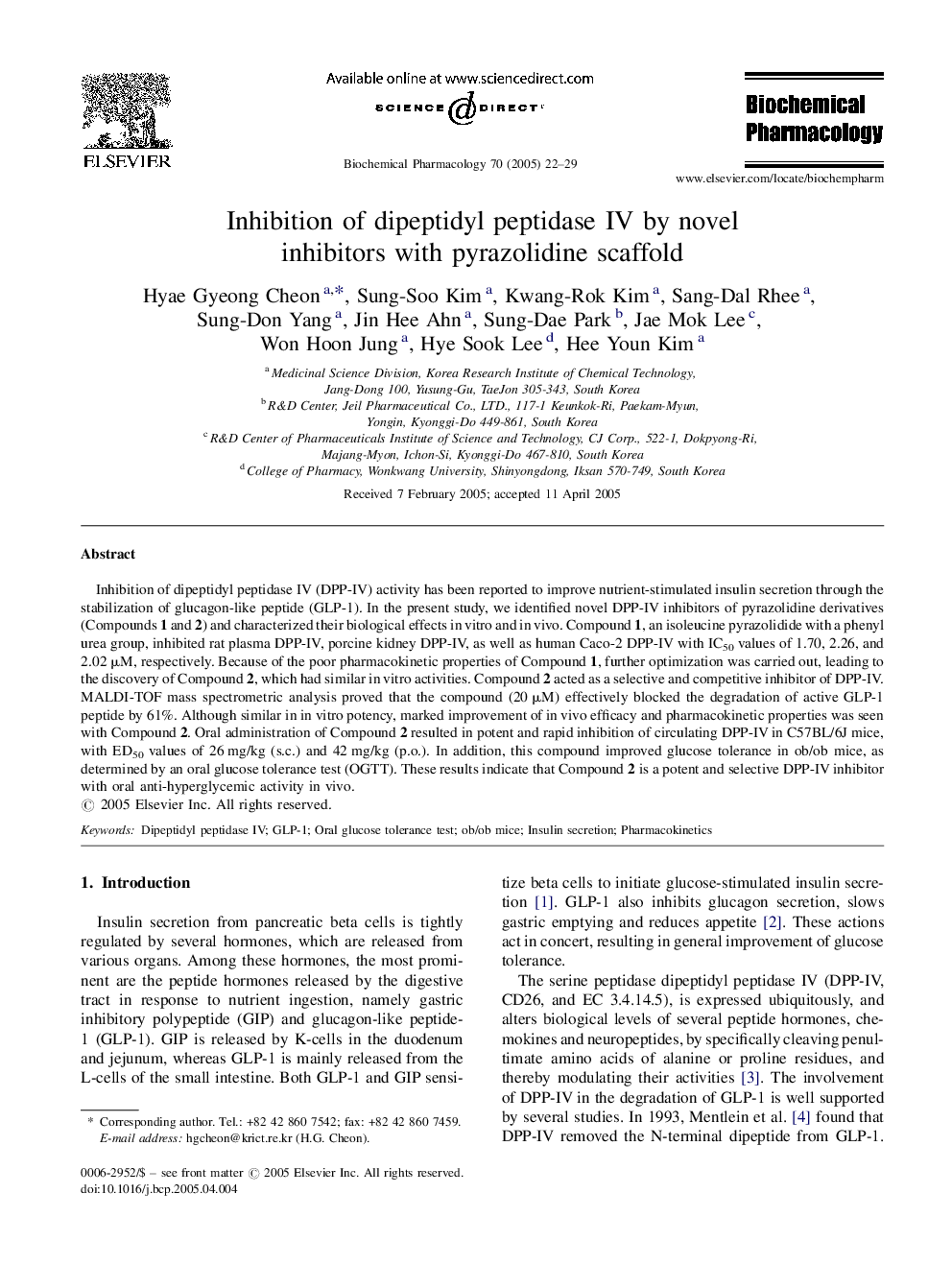| Article ID | Journal | Published Year | Pages | File Type |
|---|---|---|---|---|
| 9001979 | Biochemical Pharmacology | 2005 | 8 Pages |
Abstract
Inhibition of dipeptidyl peptidase IV (DPP-IV) activity has been reported to improve nutrient-stimulated insulin secretion through the stabilization of glucagon-like peptide (GLP-1). In the present study, we identified novel DPP-IV inhibitors of pyrazolidine derivatives (Compounds 1 and 2) and characterized their biological effects in vitro and in vivo. Compound 1, an isoleucine pyrazolidide with a phenyl urea group, inhibited rat plasma DPP-IV, porcine kidney DPP-IV, as well as human Caco-2 DPP-IV with IC50 values of 1.70, 2.26, and 2.02 μM, respectively. Because of the poor pharmacokinetic properties of Compound 1, further optimization was carried out, leading to the discovery of Compound 2, which had similar in vitro activities. Compound 2 acted as a selective and competitive inhibitor of DPP-IV. MALDI-TOF mass spectrometric analysis proved that the compound (20 μM) effectively blocked the degradation of active GLP-1 peptide by 61%. Although similar in in vitro potency, marked improvement of in vivo efficacy and pharmacokinetic properties was seen with Compound 2. Oral administration of Compound 2 resulted in potent and rapid inhibition of circulating DPP-IV in C57BL/6J mice, with ED50 values of 26 mg/kg (s.c.) and 42 mg/kg (p.o.). In addition, this compound improved glucose tolerance in ob/ob mice, as determined by an oral glucose tolerance test (OGTT). These results indicate that Compound 2 is a potent and selective DPP-IV inhibitor with oral anti-hyperglycemic activity in vivo.
Keywords
Related Topics
Health Sciences
Pharmacology, Toxicology and Pharmaceutical Science
Pharmacology
Authors
Hyae Gyeong Cheon, Sung-Soo Kim, Kwang-Rok Kim, Sang-Dal Rhee, Sung-Don Yang, Jin Hee Ahn, Sung-Dae Park, Jae Mok Lee, Won Hoon Jung, Hye Sook Lee, Hee Youn Kim,
